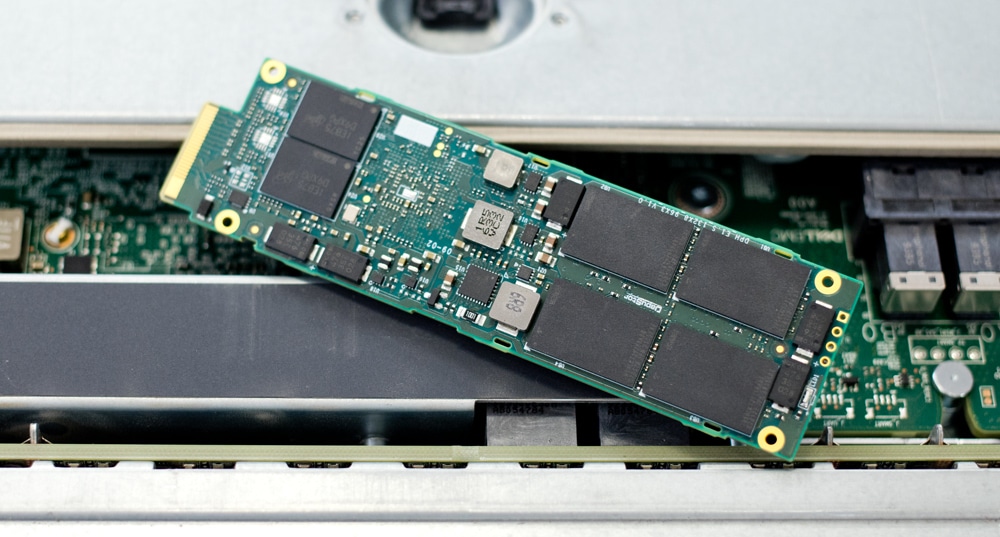DapuStor has expanded its partnership with Marvell to enhance its Flexible Data Placement (FDP) technology, tailored for QLC and TLC SSDs. Both companies will focus on tackling the performance and endurance issues associated with QLC SSDs, offering a robust and cost-effective solution for data centers, cloud computing, and high-performance computing environments.

DapuStor E1.S SSD
QLC SSDs are known for storing four bits of data per memory cell, which provides higher capacity and reduces the TCO compared to other SSD types. However, as our testing often indicates, SSDs of this type are hampered by lower endurance and slower write speeds. When integrated with the Marvell Bravera SC5 SSD controller and DapuStor’s firmware, FDP aims to mitigate these challenges.
FDP works by intelligently distributing data across the QLC Flash memory, optimizing memory cell usage, and reducing write amplification. The technology’s algorithms dynamically adjust data placement based on workload and usage patterns, ensuring frequently accessed data is stored in the most efficient and durable regions of the SSD. This leads to better performance, longer endurance, and increased reliability.
Benefits of FDP and Marvell Bravera SC5 Controller
DapuStor’s testing has demonstrated their FDP algorithms, when integrated with the Marvell Bravera SC5 SSD controller and firmware, can achieve a write amplification (WA) close to 1.0. WA measures the extra writing an SSD requires compared to the original data written, affecting its efficiency and lifespan. This optimization, for example, allows the DapuStor QLC SSD H5000 series to operate at peak efficiency.
Beyond intelligent data placement, DapuStor’s FDP solutions incorporate advanced error correction and wear leveling techniques, further improving the endurance and reliability of QLC SSDs. These enhancements result in higher write speeds, lower latency, and a longer lifespan, making QLC SSDs suitable for various demanding applications.
Both companies believe that the development of FDP technology marks a significant step in expanding the capabilities of QLC SSDs.




 Amazon
Amazon